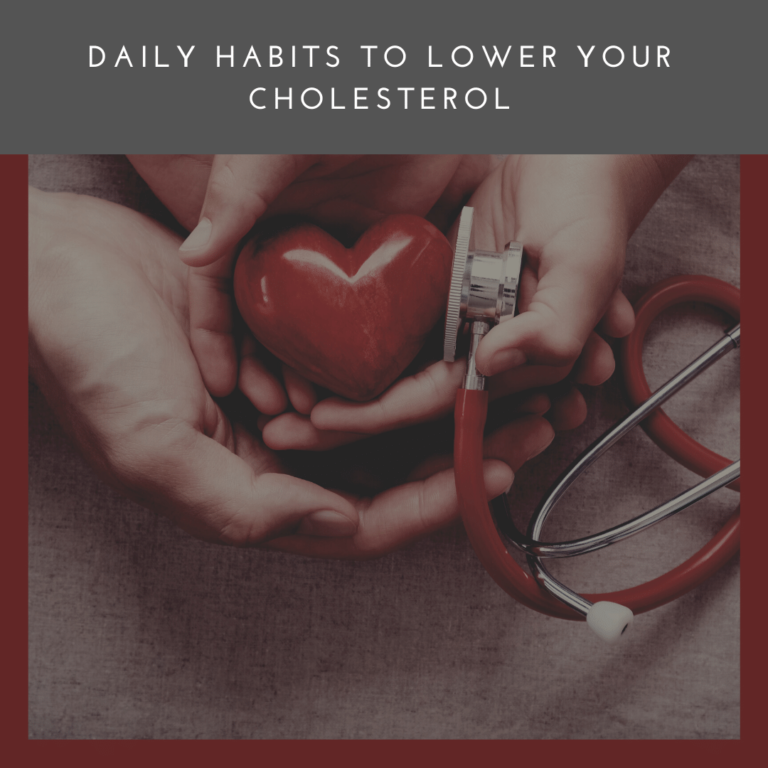Did you know that as many as 95 million Americans over the age of 20 have total cholesterol levels higher than 200 mg/dL, with 29 million of those adults having total cholesterol levels higher than 240 mg/dL? Although cholesterol is needed for proper body functions, problems can arise when cholesterol levels become too high. As a general rule, acceptable levels of total cholesterol fall below 170, borderline high cholesterol is about 170-199, and high cholesterol is any number above 200.
There are two different types of cholesterol that make up your total blood cholesterol levels. These are known as low-density lipoprotein (LDL) and high-density lipoprotein (HDL). LDL is sometimes referred to as “bad cholesterol” because it transports cholesterol throughout the body and accumulates inside your blood vessels and arteries. HDL is generally considered “good cholesterol” because it moves excess cholesterol into the liver so that it can be removed from the body.
In most cases of high cholesterol, people tend to have higher levels of LDL cholesterol, which is why high cholesterol can become dangerous. For this reason, the majority of high cholesterol medications are aimed at reducing LDL levels in the body. However, there are cases where a person’s HDL cholesterol is higher than their LDL cholesterol. These high HDL levels can contribute to a higher total cholesterol number, but is not necessarily cause for concern.
If your doctor has diagnosed you with high cholesterol, the best way to prevent additional health problems is to work on lowering your cholesterol. This usually involves some lifestyle changes. Here are a few things you can do daily to help lower your cholesterol:
Exercise
Of course, exercising regularly is one of the daily habits that can help reduce your cholesterol. As little as 2.5 hours of brisk walking or 1 hour of jogging a week is enough to lower cholesterol levels. Assuming you exercise seven days a week, this means you only have to walk 20 minutes a day.
Eat Right

Another key habit to lowering your cholesterol is to eat the right types of food. Foods like fish, nuts, and avocados, as well as oils such as canola, vegetable, olive, and sunflower all contain unsaturated fats, which do not raise cholesterol levels. Whole grains, beans, peas, fruits, and vegetables contain soluble fiber, which also helps to decrease cholesterol levels by preventing its absorption into the body.
Avoid Certain Foods
Not only will eating right help to decrease your cholesterol levels, but avoiding or reducing certain foods can be beneficial as well. Red meat, pork, chicken, and dairy products all contain saturated fats, which are solid at room temperature and can contribute to higher cholesterol. Additionally, baked goods, frozen foods, snack foods, margarine, coffee creamer, refrigerated dough, and vegetable shortenings all contain trans fats, which are artificial fats that increase LDL levels while simultaneously decreasing HDL levels.
Manage Stress

Chronic stress has been linked to higher LDL levels and lower HDL levels. Therefore, managing your stress levels can also help to improve your cholesterol levels. Exercise is an ideal way to manage stress, however meeting with friends, reading, yoga, or breathing exercises can also be helpful.
Cook Differently
When cooking, try to use healthy oils in place of shortening, butter, or unhealthy oils, as well as fat-free broths. You can also flavor your food with herbs, spices, and lemon juice instead of artificial flavorings. Finally, baking, broiling, or steaming foods is much healthier than frying them.
Medications or Supplements
As a final note, you may want to consider speaking with your doctor about using certain medications or supplements to help improve your cholesterol levels. Some supplements that have been found to lower cholesterol include fish oil, psyllium, and coenzyme Q10. However, it is important to speak with your doctor to determine which option is best for you.

Dr Kumar is a highly skilled physician dedicated to providing gentle and effective care to patients of all ages and medical conditions. He achieved his degree in a field that he is passionate about. He believes that excellent health begins with education and has made his mission to enlighten patients to ways they can take greater control over their health. Dr Kumar is committed to continuing education activities and remaining aware of the latest advancements in Medical Science to maintain current high standards of care.



